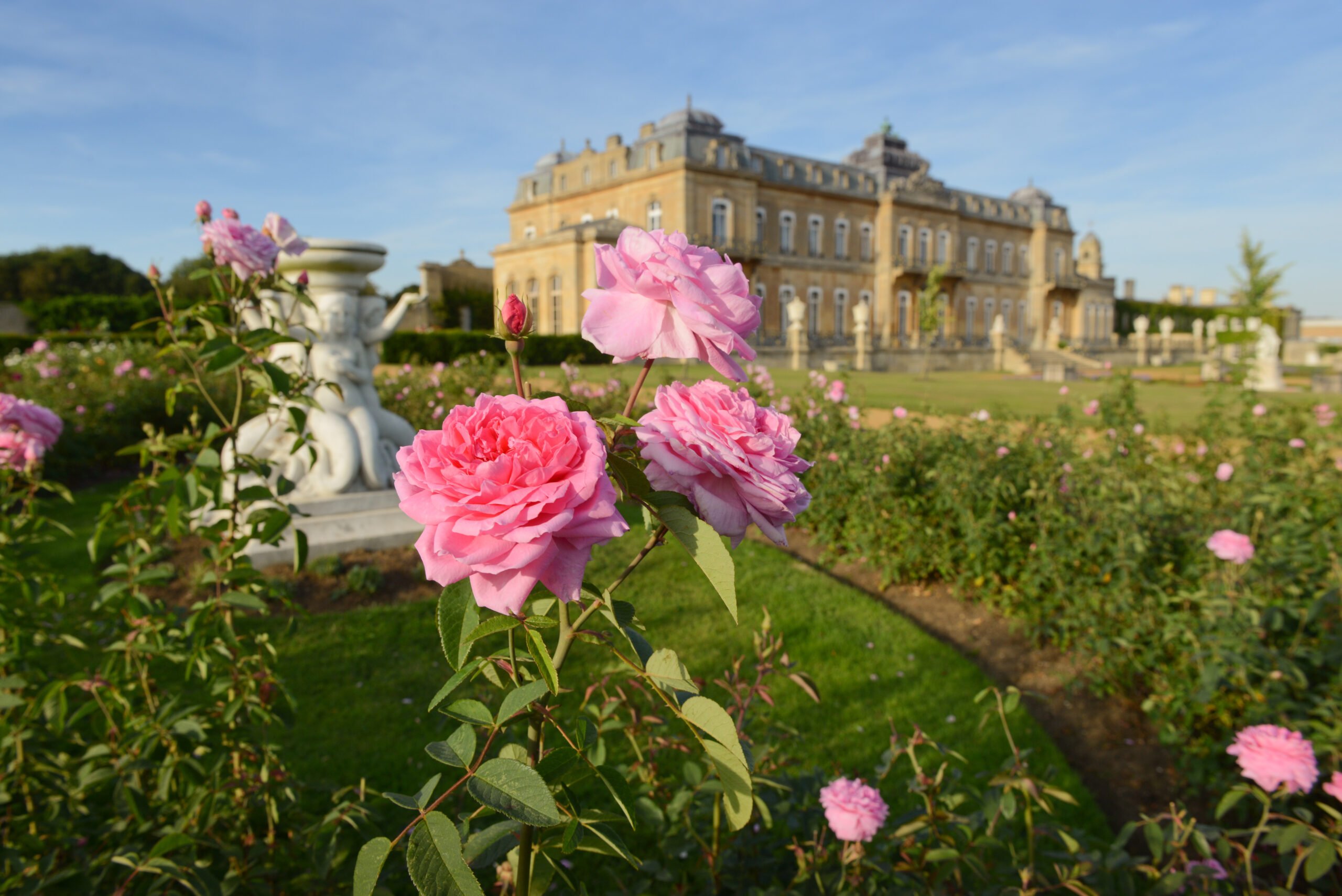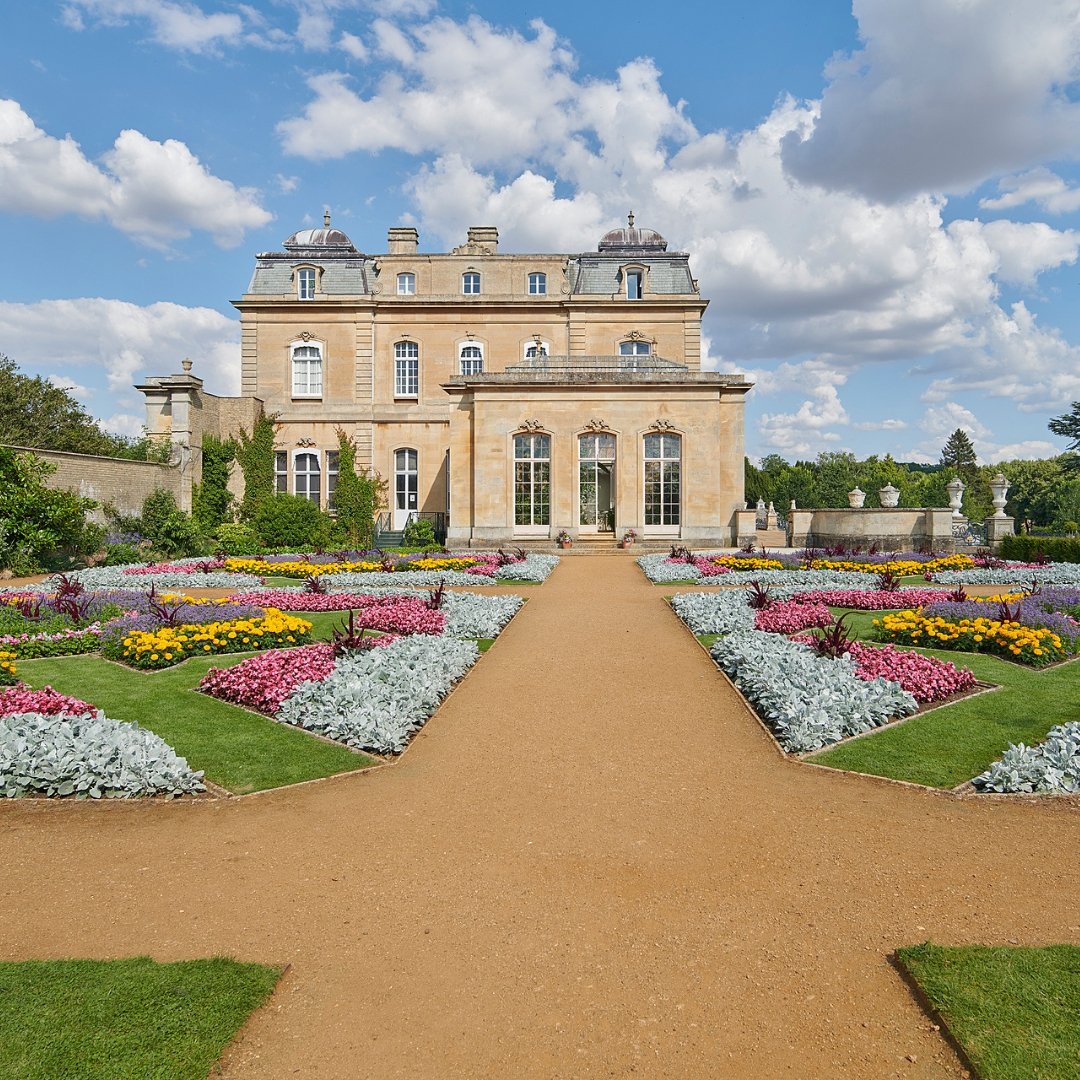Scents and sensibility – the sensory benefits of gardens

English Heritage has over 400 sites around England including many magnificent historic gardens open to the public from Osborne on the Isle of Wight to Belsay Hall in Northumberland. English Heritage’s Historic and Botanic Garden Training Programme (HBGTP) funded by the National Garden Scheme, provides paid traineeships for aspiring horticulturalists, creating the chance for passionate individuals to take their first step into a career in gardening, whether as a young person straight from education or as a career change later in life. Ben, a current trainee at Wrest Park in Bedfordshire, has been researching the sensory benefits of gardening as part of his training and shares it here …
Cast your mind back to when you’ve felt happiest in a garden and imagine how you would describe that moment. You might not be able to put your finger on exactly why it was so special, and I doubt your description would stop at a list of plants. We don’t experience a garden as an inanimate collection of species, and the moments of deepest pleasure can be intangible, ephemeral even. The more we try to describe them, the further away they seem.
The reason for this is simple. Enjoyment of a garden is not easily captured by words. It is a whole-body experience; inherently active and sensory. Beyond beauty to the eye, engaging our senses of hearing, taste, touch and smell transforms a garden from the mundane into the sublime. It even has measurable benefits for our physical and mental health.
Modern research has identified thousands of plant scent chemicals, many of which have positive effects on our wellbeing. These chemicals thread through our gardens and infuse the air, with each flower treating us to a unique tapestry of perfume. The scent of Clary sage (Salvia sclerea) has been shown to increase feelings of happiness and even help to counter postnatal depression. Rosemary (Salvia rosmarinus) has measurable impacts on memory, while Jasmine (Jasminum officinale) can improve both sleep and visual awareness. We can bring these aromatic chemicals indoors, but it takes 8,000 flowers to produce a single gram of Jasmine oil, so the easiest way to gain the benefit is to grow a plant in your garden and give it a good whiff.
- Ben, trainee at Wrest Park
More than the physiological impacts, the benefits of scent are deeply psychological. Specific smells can remind us of childhood memories or sun-drenched holidays abroad. Scent also brings us pleasure. Sweet, musk or citrus, there is a variety of fragrance equally deep and complex to the colours of flowers and every bit as enticing. A favourite of mine is the Night-Scented Stock (Matthiola longipetala), who’s spiced chai perfume rises like incense on warm summer nights. I couldn’t be without it. To my mind, a garden needs scent as much as it needs colour, and neither is more important than the other.
My traineeship with the Historic and Botanic Garden Training Programme, funded by the National Garden Scheme, gave me the opportunity to research the historic importance of scent in English Landscape gardens. Wrest Park in Bedfordshire, now owned by English Heritage, was a historic seat of the de Grey family whose owner Jemima, 2nd Marchioness Grey (1723-1797) writes passionately about the sound and scent of the garden in her diaries:
“The Blackbird has scarcely ceased, and a Cuckoo welcom’d me and told me summer was not yet too far advanced for him or me. The state of the garden is very flourishing, The verdure delightful, and some of the walks quite perfum’d with Honeysuckles & Ceringo’s; but the still greater fragrance of bean-blossoms makes the lower part of the garden more charming…the smell was beyond anything I can describe.” (Jemima de Grey 1747)
In focusing on smell, Jemima was following the advice of her garden writer contemporaries like Battey Langley. Langley had a major impact on English Landscape gardens by popularising multi-layered, graduated planting replete with scented shrubs. Many of these remain garden staples today, such as roses, Lilac, Philadelphus and Daphne. My research showed that even by the late 18th century, enough scented plants had been introduced to the United Kingdom that it was possible to have fragrance in the garden all year round. This is doubly true today, and visitors to Wrest Park can walk in Jemima’s footsteps and
experience many of the same charms she wrote about.
When picking plants for your garden, don’t just focus on what flowers when, but also on what smells when. Winter scented plants like Chimonanthus and Sarcococca are best near the house where they will encourage you to beat the winter blues by getting out into the garden. For spring and summer, space out strongly fragranced plants so they don’t compete and instead draw you further into the garden in search of their source. And consider growing displays of delicately perfumed plants like Iris reticulata in raised troughs to bring them closer to your nose.
I encourage you to deepen your love of gardens by going beyond the obvious and engaging all the senses. My next project will research sound in the garden, as running water and bird song can have equally beneficial effects on our mood. Just as I find smell as important as sight in the garden, so do I find sound. But perfume adds to a garden something unique, at once effervescent and impalpable. Scent chemicals can enliven or relax you, help with your memory, improve your mood or help you to sleep. But for me, the pleasure is all in the nose.
Ben is a trainee gardener at Wrest Park in Bedfordshire. After completing his HBGTP placement this year, he is going on to work at Longwood Gardens in Pennsylvania, USA, as the RHS/GCA Longwood Fellow.
You can visit Wrest Park when it opens for an exclusive evening tour with the National Garden Scheme on 14th August. Details here.
For more on English Heritage gardens opening for the National Garden Scheme this year click here
This story was originally published in the 2025 Little Yellow Book of Gardens and Health – to read it click here



















